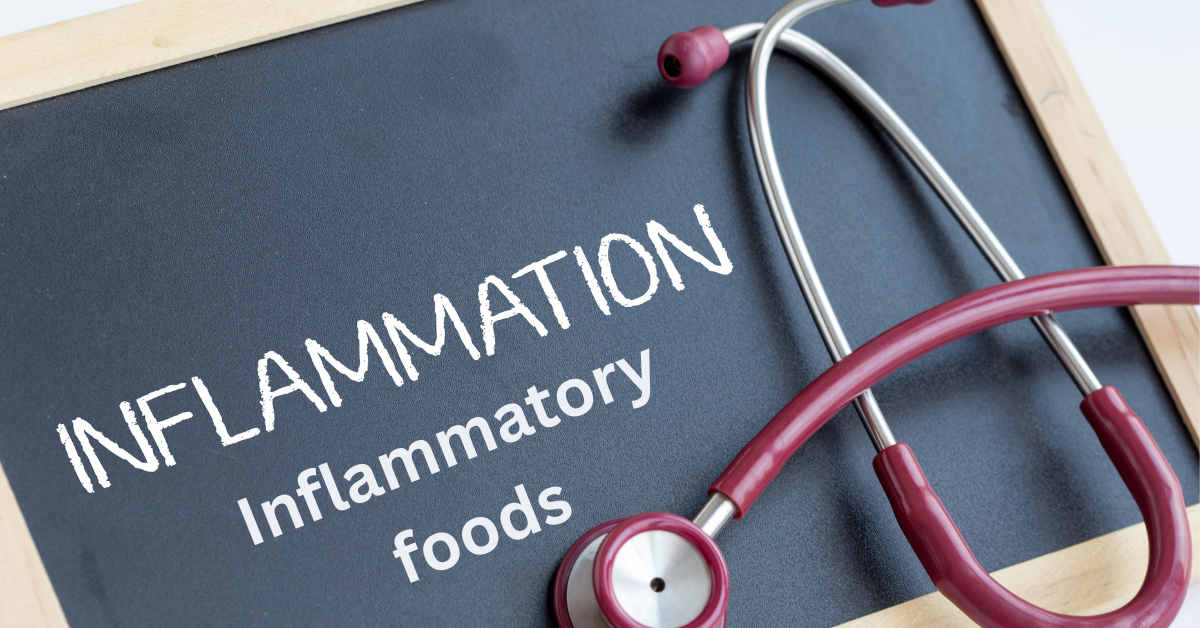Inflammation
Inflammation is the body’s defence mechanism. It is our body’s double-edged sword, vital for healing but a hidden driver of disease, aging, and mental health issues. So understanding it could transfer your well-being.
This blog will discuss what inflammation is, the factors that lead to chronic inflammation, the role of food in inflammation, and the inflammatory foods you should avoid.
Inflammation meaning
Inflammation is the body’s response to pathogens, where our body fights against them and promotes healing. But chronic inflammation leads to chronic disease. Let’s understand this acute and chronic inflammation with an example.
Imagine a situation where you get a splinter in your finger, it turns red, swollen, and feels warm, which is an acute inflammation. It is a good sign that your body is trying to expel it and preparing for healing.
But what if this type of alarming symptoms keeps on ringing without knowing the cause? Example: Aching joints in arthritis, symptoms in diabetes.
Chronic inflammation is like a smoldering fire inside your body, pathology grows older and becomes severe.”Inflammation fights for our body, but when it overstays its welcome, other diseases”.
Causes of chronic Inflammation
- Food Choices
- Stress
- Poor sleep
- Pollution
- Habits (Alcohol, Smoking)
Role of Food in Inflammation
Food sends chemical signals that can either calm or ignite inflammation in our bodies. Sometimes it triggers cytokines, produces toxic compounds, or may contain advanced glycation end products. Know this different terminology related term in detail, along with the food that we should avoid.
Inflammatory Foods
- Sugar and refined carbs
- Processed oil
- Trans fats
- Processed meat
- Excess alcohol
Sugar and refined carbs
- When we eat sugar and refined carbs (like white bread, soda, and sweets), our blood sugar rises rapidly. In response, our body releases a lot of insulin. Frequent spiking ends up in insulin resistance, a contributing factor in chronic inflammation.
- High sugar also stimulates the release of cytokines. Cytokines, a type of protein, have different roles.
- Over-secretion of cytokines can trigger a dangerous cytokine storm syndrome.
Processed Oil
- These oils are very high in omega-6 and very low in omega-3, with a high content of omega-6 shifting the body towards producing pro-inflammatory compounds.
- The refining process exposes oil to high heat and chemicals, creating free radicals that trigger inflammation and damage cells.
Trans fats
- Trans fats are unsaturated fats chemically altered through a process known as hydrogenation. Usually labeled as partially hydrogenated oil, hydrogenated oil, shortening, or margarine. Found mostly in biscuits, bakery items like puffs, chips, and deep-fried foods, etc.
- Triggers an immune response by making the cell wall rigid and dysfunctional.
- Increase CRP level, an inflammatory marker.
- Increase bad cholesterol and decrease good cholesterol.
- Promote belly fat.
Tips to avoid trans fat
- Read labels, avoid “hydrogenated”.
- Avoid reusing oil (oil reused multiple times causes trans fat formation)
- Avoid Frozen or Fast food (often pre-fried in hydrogenated oil)
- Avoid Non-dairy creamer (used in coffee machines often contains trans fat.
- Avoid Vanaspati
Processed meat
- High in Nitrates and nitrites
- These preservatives are converted to carcinogenic nitrosamines.
- Processed meat harms gut bacteria, leading to a leaky gut, and the body attacks itself (immune overactivation).
- During the cooking, processed meat forms AGEs(Advanced Glycation End Products)
- AGEs activate an inflammatory response.
- AGEs damage tissues, stiffen collagen cause skin aging.
- AGEs form when sugar reacts with fat and protein at high heat.
Alcohol
- Excess Alcohol is a major trigger of inflammation.
- Gut barrier damage leads to an overreactive immune system releasing proinflammatory cytokines.
- The liver breaks down alcohol into a toxic compound.
- Alcohol metabolism generates free radicals, causing tissue damage a direct cause of inflammation.
Quick tips to reduce inflammation naturally
- Manage stress
- Sleep well
- Avoid alcohol
- Stay physically active
- Make good food choices.
Why reading Inflammation is important
“Knowing about inflammation and its link with food helps us understand hidden diseases and manage our diet better.”
This article is for informational purposes. If the reader has any symptoms of inflammation, please consult a healthcare practitioner.
Share your experience with inflammation, food, or gut health.

